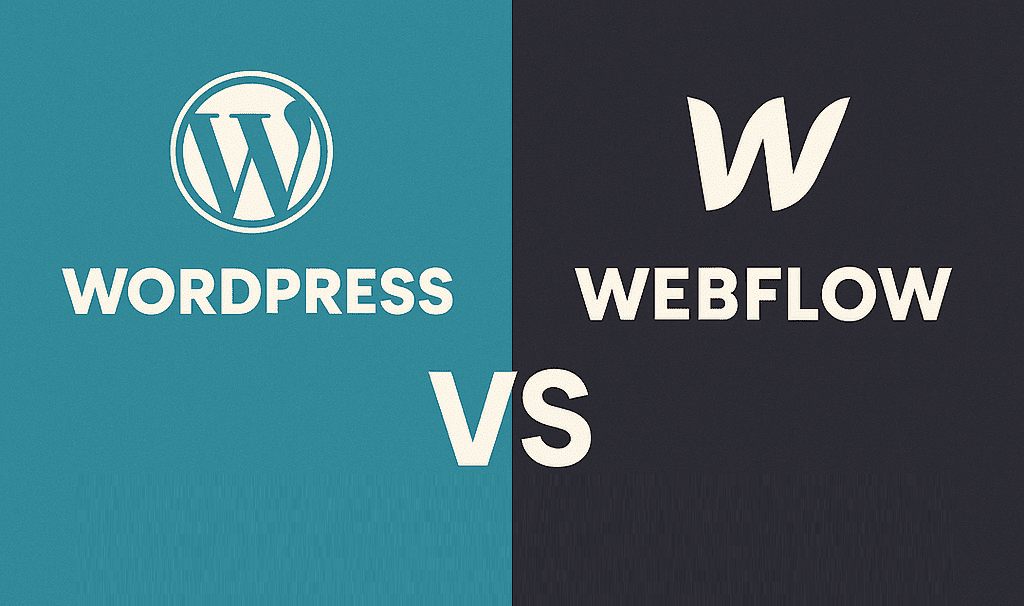WordPress vs Webflow: The Best Choice for Service Businesses
Choosing the right website platform isn’t just a technical decision. For service business founders, it’s the difference between a website that generates leads and one that quietly eats your budget.
Most people compare features. The real question is: which platform helps your business grow faster?
What We’ll Cover
✔️ Key differences between WordPress and Webflow
✔️ Strengths and weaknesses of each platform for service businesses
✔️ The growth-first perspective and how your choice affects sales and SEO
✔️ Clear guidance on which to choose in 2025
WordPress at a Glance
- Flexibility: WordPress powers 40% of the web. With plugins like WooCommerce, Elementor, and SEO tools, you can build almost anything.
- SEO strength: Google loves WordPress when set up correctly. Yoast, Rank Math, and custom optimisation give you full control.
- Costs: Software is free, but hosting, themes, and plugins can add up.
- Scalability: Works for a simple brochure site through to complex membership platforms.
- Challenges: Can be overwhelming without technical help. Plugin conflicts and updates require care.
Webflow at a Glance
- Design freedom: Slick visual editor. Great for modern, custom layouts without needing code.
- SEO tools: Strong built-in features but a smaller plugin ecosystem compared to WordPress.
- Costs: Higher monthly fees than WordPress hosting.
- Scalability: Excellent for small to medium sites. Gets trickier with very large or complex builds.
- Challenges: Smaller pool of developers and resources. Less flexibility outside Webflow’s ecosystem.
Head-to-Head for Service Businesses
| Factor | WordPress ✅ | Webflow ✅ |
|---|---|---|
| SEO flexibility | Full control with plugins + hosting | Strong built-in, but less extensible |
| Ease of use | Needs setup & plugins | Smoother out of the box |
| Cost long-term | Cheaper hosting, plugins vary | Higher recurring monthly fees |
| Customisation | Unlimited with plugins/devs | Beautiful design, limited add-ons |
| Scalability | From startup to enterprise | Best for small–mid service firms |
| Support ecosystem | Massive global community | Smaller, growing base |
Growth-First Perspective
Here’s the truth:
- If your site needs to rank locally, capture leads, and scale with your services, WordPress gives you maximum control and value.
- If you prioritise fast launch and clean design with lower complexity, Webflow is often easier, but it may limit advanced growth features later.
Your website isn’t just a shop window. It’s the engine room of your sales funnel. That’s why we always ask: does this platform help or block growth?
Our Recommendation for 2025
👉 Choose WordPress if: you’re serious about SEO, want flexibility, and see your site as a core sales tool.
👉 Choose Webflow if: design speed and simplicity are your top priorities, and you don’t mind higher running costs.
Both work. But for service businesses aiming to scale, WordPress wins more often than not.
What to Do Next
Your platform is only one piece of the puzzle. The real growth comes from:
- Clear positioning
- Growth-focused design
- A website that works with your sales pipeline
Want a site built to grow with you?
Take the Growth Scorecard and see if Growth-First Web Design is the right fit.







